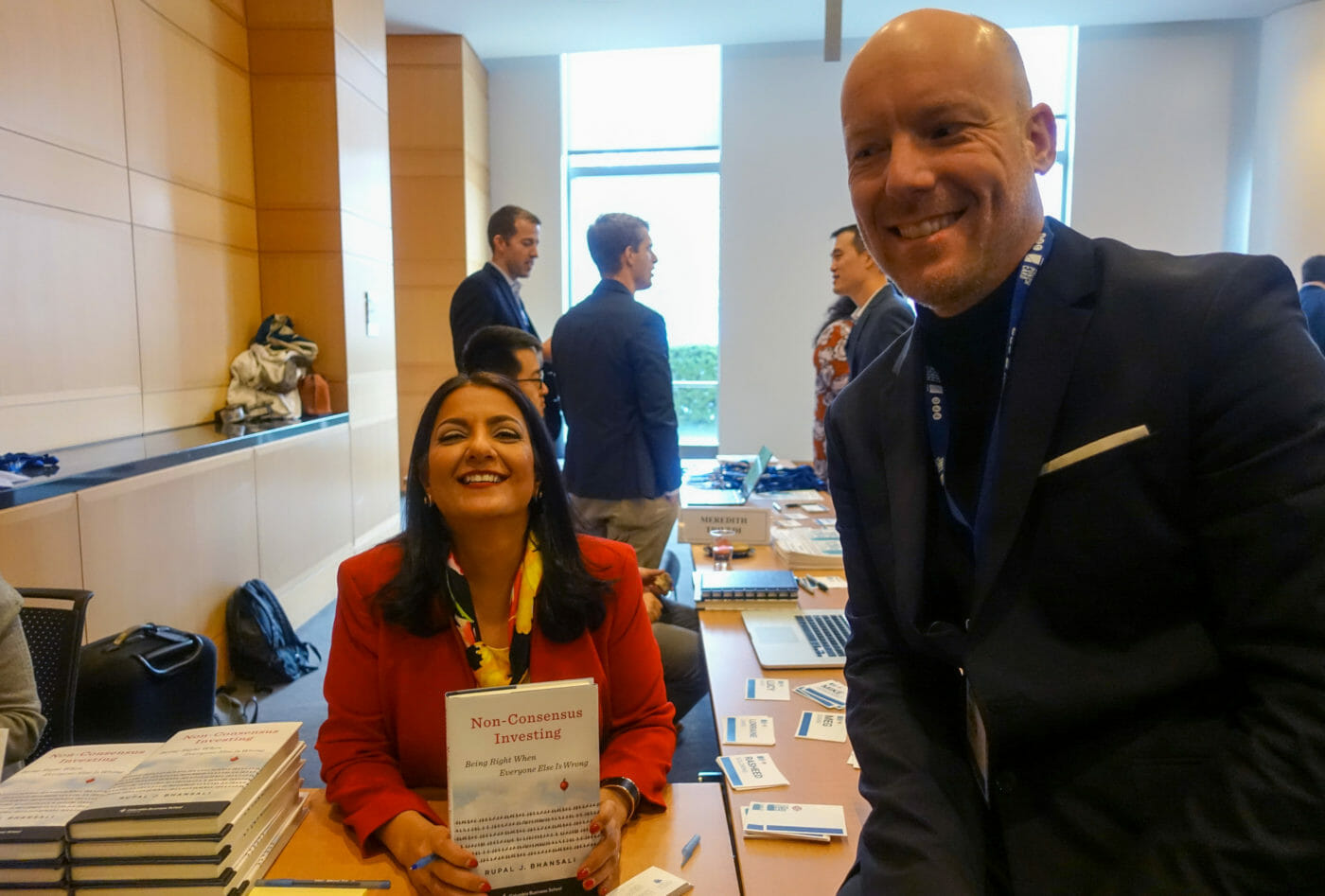As Chief Investment Officer of Ariel, Rupal Bhansali oversees USD 7bn of AUM in long-only international and global equity strategies. She started her career at George Soros’ fund management firm, and is credited as one of those value managers who have outperformed their benchmarks during the last two decades. Barron’s called her a “global contrarian”. She also wrote a book called “Non-consensus investing”.

Rupal Bhansali’s big idea: “Non-consensus investing”
Rupal Bhansali’s key thesis is that it’s not sufficient to be right. You have to be correct AND non-consensus. The consensus is already priced in, after all. To succeed in the “sport of investing”, you don’t only have to be correct, but you must also be outside the consensus. There is no pay-off if you are right but merely within the existing consensus.
To succeed in investing, you need to avoid misunderstanding quality. In Rupal’s view, the Global Financial Crisis was “a huge misunderstanding of quality. What they thought was AAA was a C. All of fundamental research and investing is about identifying the false negatives and the false positives. You have to understand what you are getting into.”
A look at misunderstood quality: From Blackberry to Apple
Rupal Bhansali cited BlackBerry as a past example for misunderstanding quality:
| Initial view: high quality | Eventual view: low quality |
| High-tech company | Consumer electronics (hit or miss) |
| Superior user experience | Equivalent user experience |
| Secular growth | Ex growth |
| Multiple opportunities | Multiple threats |
| Competitive advantage | Eroding advantage |
“BlackBerry was a darling stock.” – “It was called CrackBerry.” – “Everyone in the world wanted a BlackBerry.” – “These were all the arguments made to justify the growth multiples.”
Rupal Bhansali described Apple as a possible future case for misunderstanding quality:
| Initial view: high quality | Eventual view: low quality |
| High-tech company | Consumer electronics (hit or miss) |
| Superior user experience | Equivalent user experience |
| Secular growth | Ex growth |
| Multiple opportunities | Multiple threats |
| Competitive advantage | Eroding advantage |
Note: It is not a mistake that the tables are the same.
“This is the beginning of a company that is losing its advantage.” – “Tim Cook has gone on earnings call and said we are going to stop reporting iPhone sales.” (As in: What more do you need to know?)
“They are now spending USD 6bn to buy content to boost their other income. HBO is in the game. Disney is in the game. Netflix is spending USD 15bn. (One additional company name inaudible.) You are the FIFTH entrant into the business and you really think you are going to succeed?”
“None of these companies reveal the deterioration of their business in their financial reporting. That appears in hindsight.”
“Any information that is consensus is not worth having.”
“Oftentimes a cheap multiple is expensive. Active investing has been vilified not because it doesn’t work but because it hasn’t been practised properly. I want cheap multiples AND a quality business.”
“I have been a global equity investor and have been for decades; there is a myth that corporate governance in the US is superior. … We now have management teams buying back their shares, borrowing money, doing extensive M&A… America often gets a free pass on this issue. Many international companies have superior corporate governance because they have a long-term orientation.”
“The headline narrative that foreign stocks come with more risks is a myth. You have to do an analysis case by case. I can give you as many examples of bad corporate governance in the US than I can give you abroad.”
Rupal Bhansali: Michelin as a good case for non-consensus investing
Rupal Bhansali gave Michelin (family-controlled) as an example where the non-consensus view led her to a successful investment:
| Initial view: low quality | Eventual view: high quality |
| Just a pair of wheels | Mission-critical component |
| Low-tech, commodity | High-tech, differentiated |
| High sticker price | Value for money |
| Low ROIC business | Past does not equal future |
| New car sales down | Miles driven up |
Michelin has outperformed the MSCI World Auto Index by a factor of 2 since 2013.
“In investing you are told that if you want to make high returns, you have to take high risks. I refuse to accept this compromise.”
“Avoiding losers is more important than picking winners. After suffering -50%, it takes +100% to catch up with break even.”
“Understand quality AND avoid big penalties for wrong answers. Find opportunities where failure and disappointment are priced in, whereas success is not. Secure big payoffs via upset victories.”
All of this is described in much more detail in Rupal’s book Non-Consensus Investing: Being right when everyone is wrong. One of the big benefits of attending conferences? You can get your personal copy signed and dedicated by authors! Swen did use this chance, as you can see on the picture above :).
